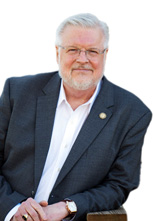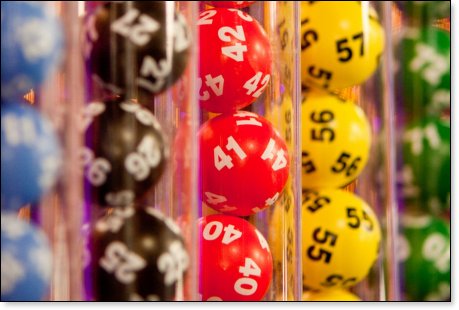
Rev. Mark H. Creech

The current Powerball jackpot has soared past $1.7 billion and continues to climb, capturing the imagination of millions who dream of sudden wealth. People place their hopes in chance rather than providence for just a few dollars per ticket. But beneath the glitter of the jackpot lies a sobering truth: lotteries, even state-run ones, are instruments of covetousness that squander resources and exploit the vulnerable.
Americans spend an estimated $600 million per Powerball jackpot cycle chasing a 1 in 292 million chance to win (MarketWatch, 2025). Defenders of the lottery often say, “It’s voluntary. No one is forced to play.” Yet that is not exactly true for those who become addicted, whose freedom is swallowed up by compulsion. Even if we grant the point, the argument collapses when we consider what could be accomplished if players voluntarily gave that same money to help their fellow man rather than chasing fantasy. With $600 million, we could provide:
- 1.8 billion meals to hungry Americans at $0.33 per meal, according to Feeding America (2025).
- We could purchase 12 million insulin pens at $50 each for needy diabetics (Drugstore.com, 2025).
- Cover annual Medicaid costs for roughly 250,000 low-income people at $2,400 per enrollee (Kaiser Family Foundation, 2024).
- In education, that money could pay tuition for 60,000 students at public universities (College Board, 2024) or provide millions of school lunches at $3.81 each (USDA, 2024).
- In housing, it could build 6,000 affordable homes at $100,000 per unit (HUD, 2024) or provide one year of rental assistance for 120,000 families at $5,000 per household (HUD, 2024).
- For infrastructure, it could repair or replace 300 structurally deficient bridges at $2 million each (Federal Highway Administration, 2024) or upgrade water systems in hundreds of rural towns (EPA, 2024).
Instead, this vast sum fuels jackpots, administration, and marketing, enriching a few. At the same time, most players — often from low-and middle-income households – contribute disproportionate shares of their income, hoping to “beat the odds.”
Even lotteries presented as supporting good causes, such as the North Carolina Education Lottery, fail to deliver meaningful impact. Only 25–35 percent of revenue typically reaches schools, while the majority is consumed by prizes, operational costs, and marketing (North Carolina Education Lottery, 2025). Marketing the lottery as “educational” masks the truth: the system preys on hope and stirs covetous desire rather than encouraging generosity and wise stewardship.
The dangers of any “get-rich-quick scheme” are evident in modern examples. Consider Jack Whittaker, who won a $314 million Powerball jackpot in 2002. Initially generous, he donated millions to charities and supported his community. But the sudden windfall brought unforeseen consequences: his granddaughter died of a drug overdose, his family life fractured, he faced multiple legal problems, and public scandals followed.
While some may argue that not every jackpot winner’s life spirals into trouble and chaos, the exception does not justify the gamble. The vast majority of participants lose far more than they gain, and even winners face stress, poor decisions, and moral temptation. With 1 in 292 million odds, the likelihood of true lasting benefit is microscopic. Yet, millions of dollars are spent chasing it every cycle – money that could do real, measurable good in the lives of tens of thousands.
The late Dr. D. James Kennedy, once the pastor of the famed Coral Ridge Presbyterian Church in Fort Lauderdale, was a staunch gambling opponent. Kennedy often would tell the story about the actual cause of the Great Chicago Fire of 1871. We all think we know how that blaze began, as it was said that “Mrs. O’Leary’s cow kicked over a lantern.” But Mrs. O’Leary swore under oath that she never went into the barn that night; she was asleep in bed. The mystery remained unsolved until decades later, when a man named Louis M. Cohn died, leaving a large sum to a university along with a letter. In it, he confessed that he and some friends had gathered in the barn that night to shoot craps. In the letter, Cohn admitted that he was winning and got so excited that he knocked over the lantern. In his book, co-written with Jerry Newcomb, Kennedy wrote:
“He [Cohn] may have won a few dollars that night, but thousands upon thousands of people in Chicago lost everything – some even their lives. I think that is a miniature picture of what gambling is like: a few people win, but a large number of people lose.”
Indeed, a few may come out ahead, but the vast majority suffer tremendous loss. In fact, all of America loses considerably more than it comprehends in its support for gambling.
The Scriptures consistently warn against the sin of covetousness, which is what gambling in any form. The Bible declares:
“For the love of money is the root of all evil: which while some coveted after, they have erred from the faith, and pierced themselves through with many sorrows. But thou, O man of God, flee these things; and follow after righteousness, godliness, faith, love, patience, meekness” (I Timothy 6:10-11).”
In short, covetousness is the sinful desire for what God has not given, which gambling both feeds and exploits.
Proverbs 23:4-5 admonish:
“Labour not to be rich: cease from thine own wisdom. Wilt thou set thine eyes upon that which is not? for riches certainly make themselves wings; they fly away as an eagle toward heaven.”
This proverb speaks directly against the mindset that fuels the lottery. Buying ticket after ticket is precisely the kind of “laboring to be rich” this proverb condemns. It is not steady, honest work for daily bread; it is draining oneself for the illusion of sudden riches. It is leaning on human schemes and chance rather than resting in God’s providence. The Bible calls us to discernment – to know when to cease chasing riches – because wealth is uncertain, deceptive, and easily lost in life. Moreover, materialism can never satisfy the human soul’s hunger; only a right relationship with God through Christ can.
Gambling, even under the guise of charity, encourages greed, wastes God-given resources, and exploits the vulnerable. It casts one’s faith upon the altar of the god of Luck, rather than trust in the Lord’s provision, contradicting passages like Psalm 37:25: “I have been young, and now am old, yet I have not seen the righteous forsaken, nor his children begging bread.”
Every ticket purchased is a tacit admission that we value chance over stewardship, covetous desire over generosity, and fantasy over faithful action. What an indictment of our national character!
The current Powerball frenzy is far from harmless fun. While one person may strike it rich, millions lose, and the same resources could be used to transform countless lives. With voluntary giving — no taxes required — we could feed the hungry, educate children, house families, and provide medical care for those in need. Instead, billions are squandered chasing waterfalls: alluring but ultimately destructive pursuits that rarely deliver what they promise.
If we truly love our neighbors as Scripture commands, we must resist the lure of gambling and dedicate our resources to endeavors that build life, not gamble it away on fleeting chance.
© Rev. Mark H. CreechThe views expressed by RenewAmerica columnists are their own and do not necessarily reflect the position of RenewAmerica or its affiliates.


















